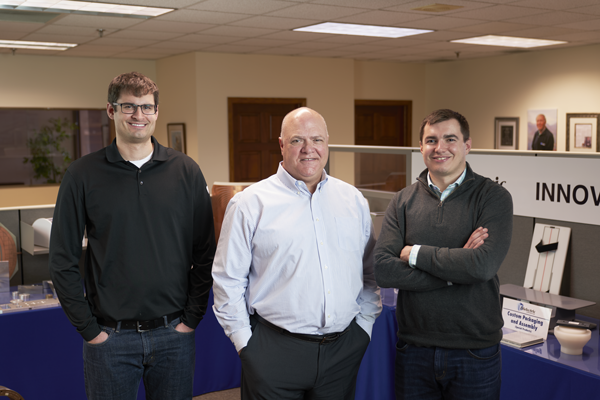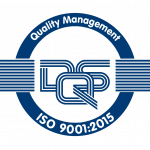Electrical Controls Industry Sparked
the Founding of Dielectric Manufacturing
Dielectric Manufacturing fabricates plastic and metal parts for a wide variety of uses and industries. But as the company’s name implies, its beginning was grounded in the electrical controls industry that has long been a key sector of Milwaukee’s economy.

The late Ray Esser, founder of Dielectric Manufacturing
With companies such as Allen-Bradley (now Rockwell Automation), Square D (now Schneider Electric), Cutler-Hammer (now Eaton), Johnson Controls, and others in the community, components for their controls were in demand – including dielectric materials to insulate electrical current in high-voltage equipment.
Ray Esser was working as general manager of the former Wisconsin Gasket when that company started to get requests for short runs of dielectric materials in the early 1960s. It wasn’t the type of work Wisconsin Gasket was interested in, but Ray saw an opportunity and started fabricating the pieces in his home basement with a drill press and saw.
Army-Trained Electrician, Schooled in Accounting
Ray had been trained as an electrician while serving in Japan in the Army, but upon return to the States, he learned accounting through seven years of night school.
Both skills would pay off when he decided to make a go of it with the dielectric parts in 1966. He purchased equipment and set up shop in Milwaukee, doing business as Dielectric Corporation.
The business grew and grew, prompting the need for several relocations to accommodate the need for more space.
An entrepreneur by nature, Ray acquired several other companies over the years, with plants throughout the U.S.
Expanding Into Thermoplastics
While thermosets, commonly used as electrical insulators, was the core of the business, Dielectric eventually started working with thermoplastic materials as well. That was largely fostered by the needs of a major international manufacturer.
It was 1983 when GE Medical (now GE Healthcare) opened a new plant in nearby Waukesha, investing heavily in MRI technology. GE needed precision components for the MRI, Xray and other diagnostic equipment – but not in volumes that would require mold-making or mass production.
Its needs fit perfectly into Dielectric’s approach to business, and would be the catalyst for Dielectric Corp. to expand into thermoplastics and, eventually, non-ferrous metals.
Ferrous Metals Added with Acquisition
The addition of ferrous metals as materials it could handle came in 2015 when the company purchased Centerline Machine in Waupaca, Wis.
The company now has three locations: its metro Milwaukee headquarters and main plant, the Centerline plant in Waupaca, and a plant in Lake Mills, Iowa. It ships its parts and components internationally.
Ray passed away in 2008, but left a legacy of a business with a national reputation for excellence.

Chris, Mike and Michael Esser
“Ray set the tone for integrity and a willingness to do what others wouldn’t do, or what others couldn’t figure out how to do,” said Mike Esser, Ray’s son who now runs the company with his sons Michael and Chris Esser. “He was tough but treated people with dignity. We work hard to live up to his legacy, and with many long-time employees, we believe we are running the company as he would.”
Components made with dielectric materials are still important to the company, but with its growth into other materials, and with its expanded capabilities and wide variety of value-added services, it is now known as Dielectric Manufacturing. Read more about the next chapter of the contract manufacturer.




